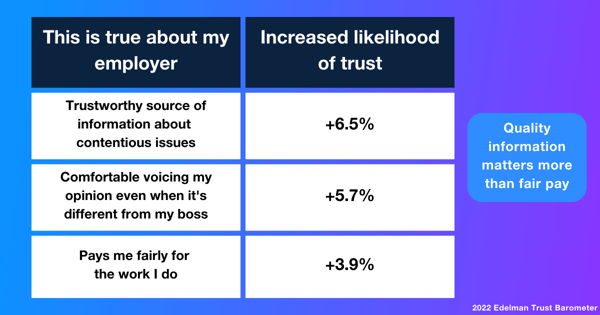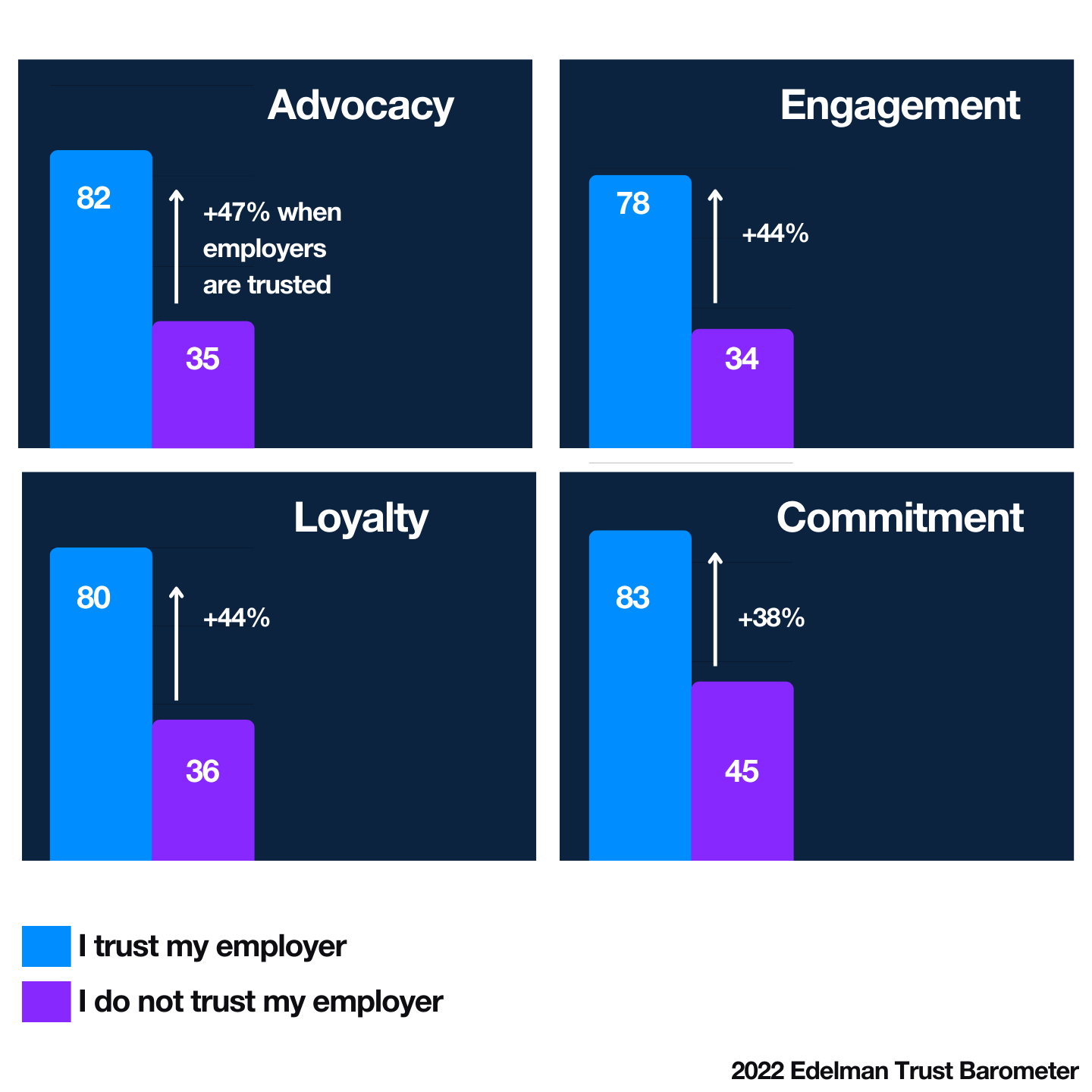
So does your team trust you, company leaders, and peers?
In our increasingly polarized society, workplaces are now held to a higher standard. Leaders are expected to address societal issues in meaningful ways. Creating a safe environment where employees feel seen, heard, and understood is critical to establishing and maintaining mutual trust.
Leaders and employees alike should feel comfortable speaking up and challenging the status quo. Trust is essential to building a better future of work for all.
Here are 5 simple tips to help inspire trust in your culture:
1) Make sure you're asking these important questions (even if deep down you're scared of the answers).
- Are teammates comfortable discussing troubling current events?
- Do coworkers respect peers with different opinions and views?
- When and how should our leadership team bring up difficult topics?
- How can we equip managers to best support their direct reports?
- What mental health resources are available for the team?
2) Model the way by communicating from the heart. This looks like being genuine and transparent instead of saying what you think others want to hear.
3) Test different ways of sparking open dialogue for those who want to participate... a live conversation, video message, Slack post, or whatever mechanism you use to communicate within your culture.
4) Bring in thought leaders and experts to facilitate conversations and trainings on important topics. Beyond our own SHIFT keynote and workshop offerings, here are three speakers we can confidently vouch for.
- Jodi-Ann Burey speaks on topics like navigating workplace racial microaggressions, building a management toolkit for anti-racism and belonging, and a lot more.
- Dr. Paula Stone Williams is a national public speaker specializing in gender equity, LGBTQ inclusion, and executive leadership.
5) Offer mental health resources (like LifeGuides). Invite teammates who have benefited from the resource to share words of inspiration with others who may be hesitant to try.
A company culture that promotes psychological safety and prioritizes mutual trust is a must-have, not a nice-to-have.
On top of the emotional well-being of team members, there are real business implications.
People who trust their employer are:
- Likely to recommend the company's products or services (advocacy)
- Invested in improving the organization's initiatives and products/services (engagement)
- Dedicated to staying with the company (loyalty)
- Motivated to go above and beyond (commitment)

Are You Pushing Your Team Out the Door?
"We're very clear this is the choice we've made, and if people want to make another choice there are lots of opportunities for people from Credit Karma to go work somewhere else." – Colleen McCreary, Credit Karma's Chief People Officer, on the decision for employees to work part of the week in the office
In this short video, our Managing Director Jeff Lesher shares his perspective on where Credit Karma dropped the ball and how other leaders can avoid making similar mistakes.
Regardless of whether you're in favor of WFH or RTO, focus on giving your team reasons to stay instead of challenging people to leave.
Discover New Perspectives

🎙 LISTEN – "Supporting Moms at Work"
This episode of the Working Mom Hour podcast digs into why the way we work isn't working and what people like Claudia Naim-Burt are doing to fix it.
🎥 WATCH –
"How effectively do your goals support your performance?"
In less than 3-minutes, you'll be rethinking your approach to setting goals on company-wide, team, and individual levels.
📚 READ – "High-Performing Teams Need Psychological Safety"
This quick read hones in on what leaders, managers, and teammates can do to cultivate a healthy and high-performing culture.
Join our Stories that SHIFT Newsletter
Subscribe to get your dose of inspiration, stories, resources, and entertainment delivered straight to your inbox. You’ll be happy you did!








